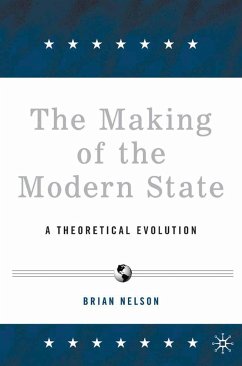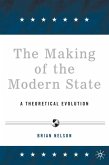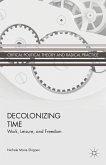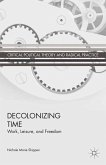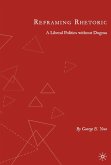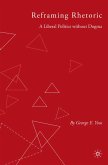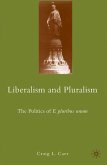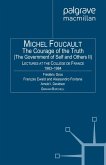Nelson provides a historical overview of the theoretical and ideological evolution of the modern state, from pre-state and pre-modern state formations to the present. A major theme of the book is the need to understand the modern state holistically, as a totality of social, political, and ideological factors.
"This book is a welcome antidote to the tendencies in recent political science to denigrate and abandon the state as a foundational concept. Nelson tracks the concept of state from antiquity to the present, from inchoate pre-state forms to the modern state, demonstrating in his excellent survey that the anatomy of the state is both relevant and compelling in shaping contemporary political inquiry. A generous and accessible work that should be read by all students of politics." - Fred Frohock, University of Miami
"Brian Nelson has written an excellent book tracing the intellectual history of the concept of 'the state' in Western political thought from the classical era to the present day. Working from a clear and concise understanding of the core elements of the state in political life, Professor Nelson does a remarkable job articulating its evolution over time, as well as the dynamic relationships between political historical development and political understanding. Nelson is unsurpassed in his ability to succinctly summarize the most central components in the writings of canonical political theorists, as well as the most significant historical influences on the development of those thoughts. The argument of the book, moreover, makes clear what Americans (and especially American political scientists) have lost by adopting an anti-state ideology that blinds most of us to the realities of the American polity in the world today." - Ronald Schmidt, Sr., California State University, Long Beach, and author of Language Policy and Identity Politics in the United States
'Nelson's The Making of the Modern State is a brilliant intellectual Tour de Force. The erudition and scholarship of this major work of political philosophy are truly exceptional. The coverage of the subject matter as well is comprehensive and exhaustive both in theoretical and historical terms. In addition, his personal insights and interpretive novelty of fundamental theories and concepts are very valuable contributions to our stock of knowledge in the field. This book is a landmark in the literature of an academic genre known for its abstruseness. It will prove of great interest and didactic value to a wide spectrum of readers, ranging from academics to the educated public in general.'
- Antonio Jorge, Professor of Political Economy, Florida International University
"Brian Nelson has written an excellent book tracing the intellectual history of the concept of 'the state' in Western political thought from the classical era to the present day. Working from a clear and concise understanding of the core elements of the state in political life, Professor Nelson does a remarkable job articulating its evolution over time, as well as the dynamic relationships between political historical development and political understanding. Nelson is unsurpassed in his ability to succinctly summarize the most central components in the writings of canonical political theorists, as well as the most significant historical influences on the development of those thoughts. The argument of the book, moreover, makes clear what Americans (and especially American political scientists) have lost by adopting an anti-state ideology that blinds most of us to the realities of the American polity in the world today." - Ronald Schmidt, Sr., California State University, Long Beach, and author of Language Policy and Identity Politics in the United States
'Nelson's The Making of the Modern State is a brilliant intellectual Tour de Force. The erudition and scholarship of this major work of political philosophy are truly exceptional. The coverage of the subject matter as well is comprehensive and exhaustive both in theoretical and historical terms. In addition, his personal insights and interpretive novelty of fundamental theories and concepts are very valuable contributions to our stock of knowledge in the field. This book is a landmark in the literature of an academic genre known for its abstruseness. It will prove of great interest and didactic value to a wide spectrum of readers, ranging from academics to the educated public in general.'
- Antonio Jorge, Professor of Political Economy, Florida International University

